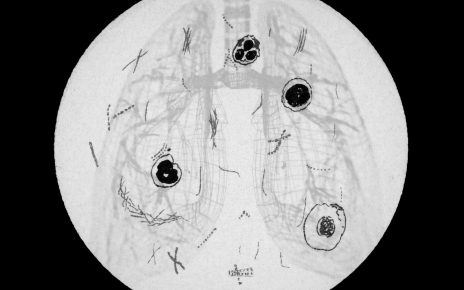(Reuters Health) – A one-day, online cognitive behavioral therapy-based workshop along with usual care can improve postpartum depression and anxiety, a new study suggests.
In a trial including 403 Canadian women with postpartum depression who were randomly assigned to receive either usual care plus the live online workshop or usual care plus waitlist, those who participated in the workshop had higher odds of a clinically significant decrease in depression scale scores, according to the results published in JAMA Psychiatry.
“One-day cognitive behavioral therapy-based workshops for postpartum depression have the potential to significantly increase access to treatment and could represent an important first step in stepped-care treatment pathways for postpartum depression, helping many mothers while identifying those in need of additional treatment,” said the study’s first author Dr. Ryan Van Lieshout, an associate professor in the department of Psychiatry and Behavioural Neurosciences at McMaster University in Hamilton, Ontario, and Canada Research Chair in the Perinatal Programming of Mental Disorders.
“(Usual care) in the province of Ontario in Canada, is universally available and so mothers in the study could engage in any other treatments they wanted to (antidepressant medication, psychotherapy, etc.) in addition to the workshops,” Dr. Van Lieshout explained in an email.
The researchers conducted a parallel-group, province-wide, randomized clinical trial in Ontario between April 20 and October 4, 2020. Study participants were continuously recruited and allocated 1:1 to the experimental group that would receive the workshop plus therapy as usual, or to the control groups that would receive therapy as usual and be put on a wait list to complete the workshop 12 weeks later.
Workshops were delivered by a registered psychotherapist, a clinical psychology graduate student, or a psychiatrist. “The treatment was delivered in group format to up to 30 mothers at a time,” Dr. Lieshout said. “The average number of moms who attended each group was 16.”
“The interactive workshops were delivered live via Zoom from 09:00 to 16:00 with morning, lunch, and afternoon breaks,” Dr. Lieshout said. “They consisted of four modules. The first contained information on the causes of postpartum depression, while the second focused on helping mothers identify and shift difficult thinking patterns. The third involved teaching strategies to help change behaviors to improve mood and anxiety, and the fourth provided an opportunity for goal setting and action planning. Teaching methods included didactic sections, group exercises, and role-plays.”
A total of 403 women were randomized with 202 in the intervention group and 201 in the control group. The participants’ mean age was 31.8, most had partners, and the mean age of their infants was 5.3 months. Eighty-seven mothers (22%) were taking antidepressant medication at baseline, and 167 (41%) previously had some counseling.
The women were evaluated with the Edinburgh Postnatal Depression Scale (EPDS), and a score change of 4 points or more between baseline and follow-up 12 weeks later was considered clinically significant.
Overall, 105 of 165 participants (64%) in the experimental group vs 57 of 192 participants (30%) in the control group had a clinically significant change in EPDS score at 12 weeks, the study’s primary outcome. Reductions in mean EPDS scores (from 16.47 to 11.65) among those who attended the workshop translated to higher odds of a clinically significant change (odds ratio 4.15) in the experimental group compared with the controls.
The mothers also reported improvements in the secondary outcomes of bonding, infant-focused anxiety, social support and positive affectivity/surgency in the infants.
The authors noted some limitations of the study, including the use of a convenience sample and the fact that attrition was higher in the intervention group.
The study was supported by a COVID-19-related grant from the Canadian Institutes of Health Research for Developing Innovative Adaptations of Services/Delivery.
Postpartum depression, the most common complication of childbirth, is known to have poor outcomes for mothers, children, families, and the economy, said Dr. Julia Nardi Riddle, a fellow in reproductive psychiatry at the Women’s Mood Disorders Center at the Johns Hopkins University School of Medicine in Baltimore, who wasn’t involved in the study.
“It is also treatable,” Dr. Riddle said in an email. “We, in medicine and society, must continue to strive for accessible, universal, and financially feasible models that more quickly identify and treat women in the postpartum.”
“This study seeks to add an evidence-based tool to our toolbox and that’s important,” Dr. Riddle said. “The scale that they use (the EPDS) is not meant to be a diagnostic test for PPD, but rather as a screening tool; however, using it as part of screening all postpartum mothers is vital for linking them to further assessment and treatment. The researchers did a nice job of identifying the limitations of this study and how their course could, after further evaluation, be used as one piece of a larger public health mission for comprehensive perinatal mental health care. We must continue to think creatively about interventions like this one.”
SOURCE: https://bit.ly/3hDnEB3 JAMA Psychiatry, online September 8, 2021.
Source: Read Full Article



